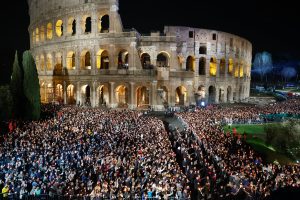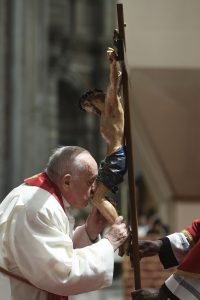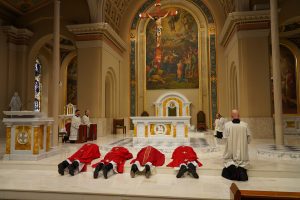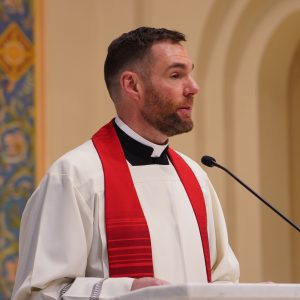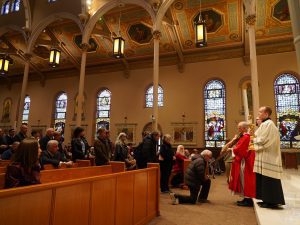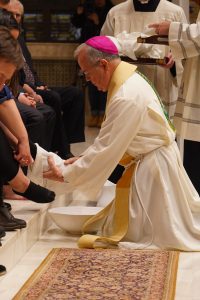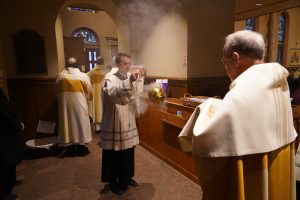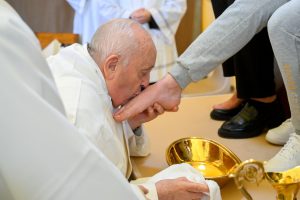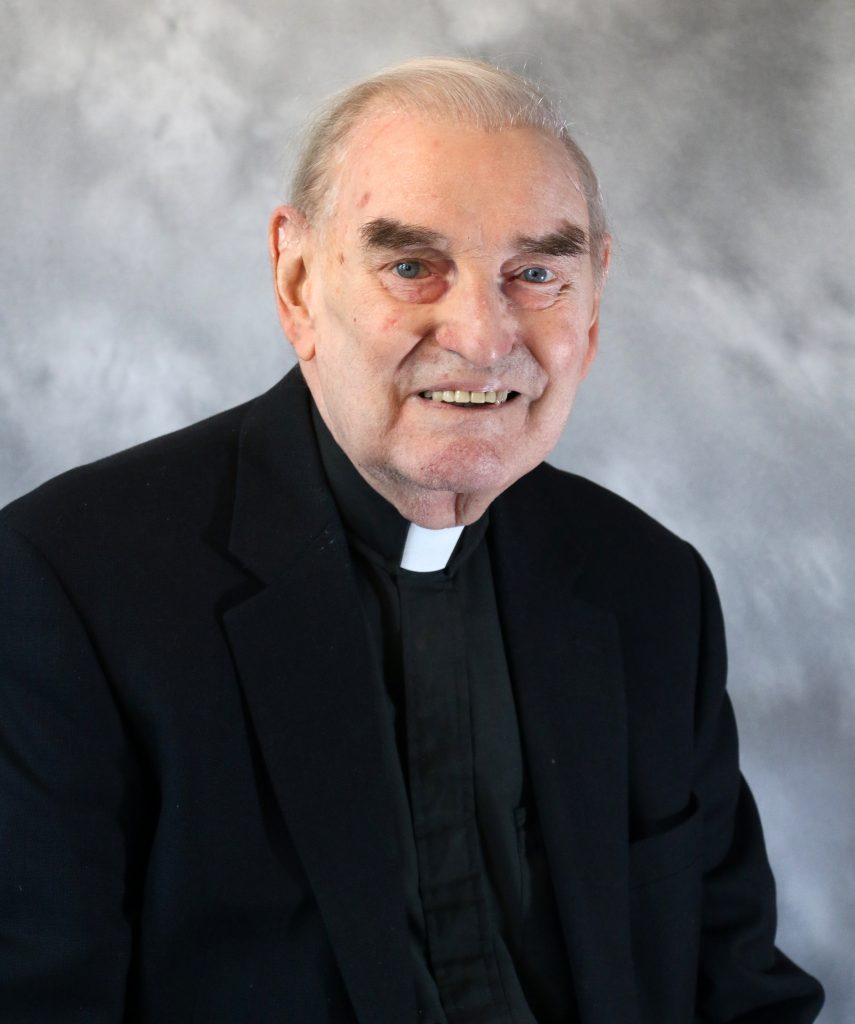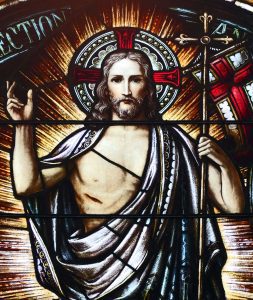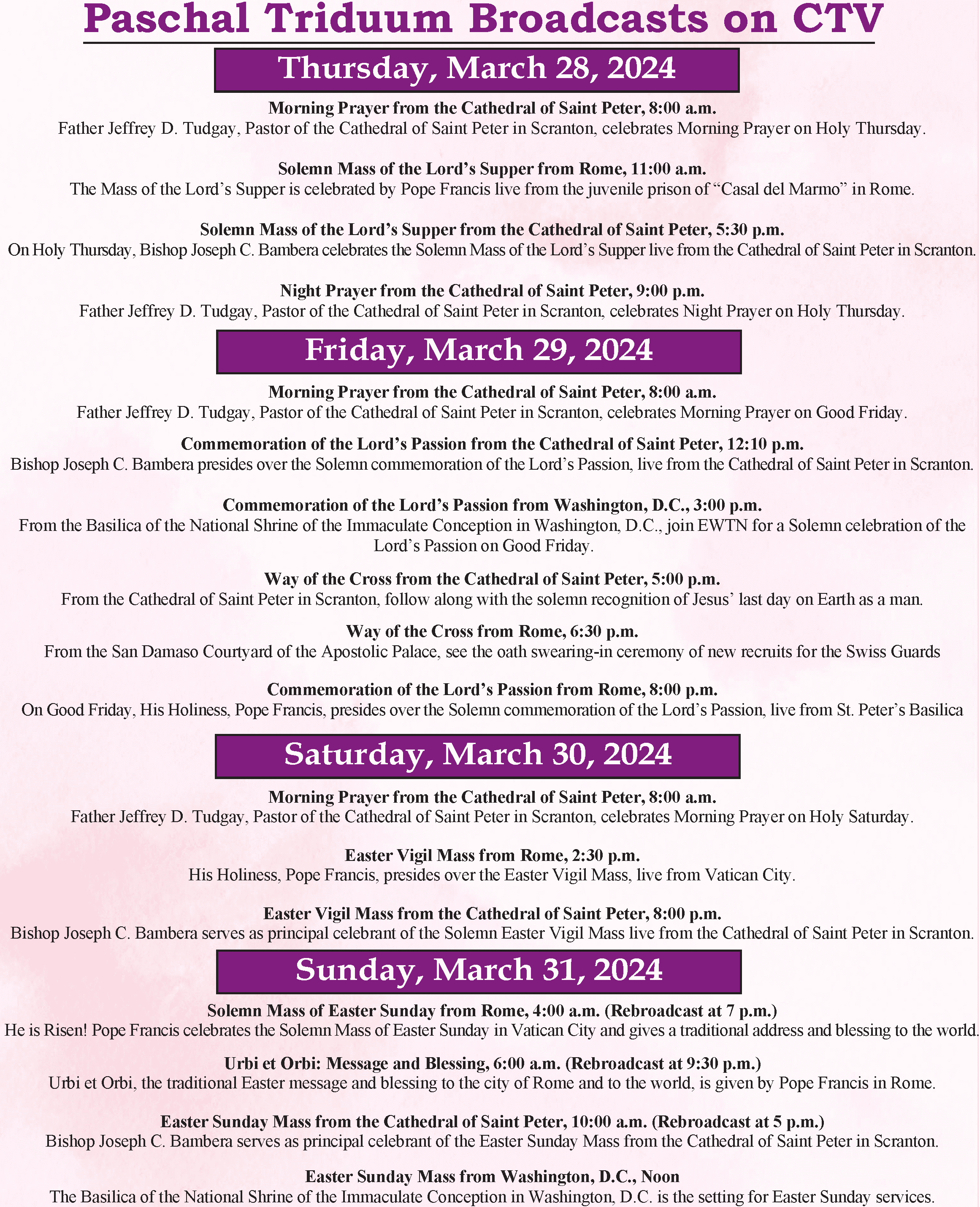VATICAN CITY (CNS) – Easter is a promise that no matter how dark the world may seem and no matter how heavy the burdens one carries, victory belongs to the Risen Christ and all who believe in him, Pope Francis said.
“Let us lift our eyes to him and ask that the power of his resurrection may roll away the heavy stones that weigh down our souls,” the pope said in his homily at the Easter Vigil March 30.
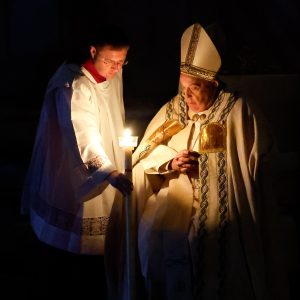
“Let us lift our eyes to him, the Risen Lord, and press forward in the certainty that, against the obscure backdrop of our failed hopes and our deaths, the eternal life that he came to bring is even now present in our midst,” he said.
After staying home the night before rather than preside over the Way of the Cross at Rome’s Colosseum, the pope arrived at the basilica in a wheelchair. Although he had to clear his throat several times, he read the entire prepared text of his homily.
During the Mass, two deacons brought a baptismal font to Pope Francis, and he baptized eight adults: four Italians, two South Koreans, a man from Japan and a woman from Albania. He also confirmed them and gave them their first Communion.
The liturgy began in the back of St. Peter’s Basilica, under a tapestry of the Risen Christ, with the blessing of the fire and the lighting of the Easter candle.
Norbertine Brother Gerard P. Juhasz, a deacon from St. Michael’s Abbey in Silverado, California, carried the paschal candle into a darkened St. Peter’s Basilica, chanting three times, “Lumen Christi” (Latin for “the Light of Christ”). After being blessed by Pope Francis, he sang the Exsultet, the solemn Easter proclamation.
In his homily, Pope Francis asked the congregation of about 6,000 people to think about what the women who had gone to Jesus’ tomb to anoint his body must have been thinking and feeling.
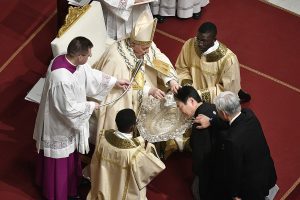
“The tears of Good Friday are not yet dried; they are grief-stricken, overwhelmed by the sense that all has been said and done,” the pope said.
And, according to the Gospel of Mark, they are worried about being able to move the stone away so they can anoint Jesus’ body.
“That stone marked the end of Jesus’ story, now buried in the night of death,” the pope said. “He, the life that came into the world, had been killed. He, who proclaimed the merciful love of the Father, had met with no mercy. He, who relieved sinners of the burden of their condemnation, had been condemned to the cross.”
But, Pope Francis said, the stone also represents the weight on the heart of Jesus’ female disciples and the burdens carried by everyone who is grief-stricken and without hope.
“There are times when we may feel that a great stone blocks the door of our hearts, stifling life, extinguishing hope, imprisoning us in the tomb of our fears and regrets, and standing in the way of joy and hope,” he said.
Those “tombstones,” he said, can come with the death of a loved one, a failure to do good, a missed chance to build a more just society and “in all our aspirations for peace that are shattered by cruel hatred and the brutality of war.”
But the Gospel says that when the women “looked up, they saw that the stone had been rolled back.”
“This is the Pasch of Christ, the revelation of God’s power: the victory of life over death, the triumph of light over darkness, the rebirth of hope amid the ruins of failure,” Pope Francis said. “It is the Lord, the God of the impossible, who rolled away the stone forever.”
“Even now,” the pope said, “he opens our tombs so that hope may be born ever anew. We too, then, should ‘look up’ to him.”
“If we allow Jesus to take us by the hand, no experience of failure or sorrow, however painful, will have the last word on the meaning and destiny of our lives,” he said. “Henceforth, if we allow ourselves to be raised up by the Risen Lord, no setback, no suffering, no death will be able to halt our progress toward the fullness of life.”
“Let us welcome Jesus, the God of life, into our lives, and today once again say ‘yes’ to him,” Pope Francis said. “Then no stone will block the way to our hearts, no tomb will suppress the joy of life, no failure will doom us to despair.”


